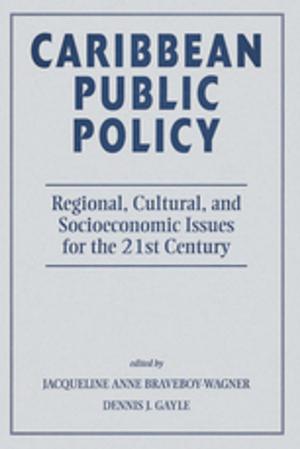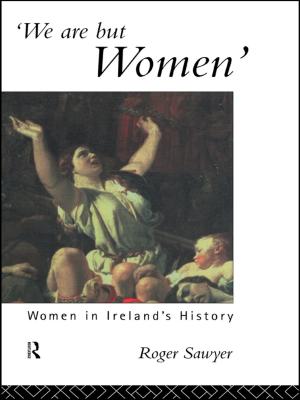Nation-Building and Personality Cult in Turkmenistan
The Türkmenbaşy Phenomenon
Nonfiction, Social & Cultural Studies, Social Science, Cultural Studies, Ethnic Studies| Author: | Fabio De Leonardis | ISBN: | 9781351268660 |
| Publisher: | Taylor and Francis | Publication: | October 12, 2017 |
| Imprint: | Routledge | Language: | English |
| Author: | Fabio De Leonardis |
| ISBN: | 9781351268660 |
| Publisher: | Taylor and Francis |
| Publication: | October 12, 2017 |
| Imprint: | Routledge |
| Language: | English |
Turkmenistan is a country which is almost sealed off from the rest of the world but it has attracted foreign attention due to the eccentricities of its late president Saparmurat Niyazov Türkmenbaşy, whose ideological construction and dynamics of power have remained in place after his death.
This book offers a thorough analysis of why this personality cult developed in Turkmenistan in a way that has not been seen in other newly developed Central Asian countries. In assessing the Türkmenbaşy phenomenon, this book explains the causes and origins of the personality cult by drawing a comparison with Qadhdhafi’s Libya. The author understands the Niyazov cult not as a discrete phenomenon but as a system deriving from specific historical functions and functioning in a determined social and historical context. Using accounts of the Türkmenbaşy and Qadhdhafi cults and the speeches and books written by these personalities, this book focuses on the institutional side of the personality cult.
A fascinating analysis of the political situation in Turkmenistan under Saparmurat Niyazov, this book will be of interest to scholars of Political Science, Comparative Politics and, in particular, Central Asian Studies.
Turkmenistan is a country which is almost sealed off from the rest of the world but it has attracted foreign attention due to the eccentricities of its late president Saparmurat Niyazov Türkmenbaşy, whose ideological construction and dynamics of power have remained in place after his death.
This book offers a thorough analysis of why this personality cult developed in Turkmenistan in a way that has not been seen in other newly developed Central Asian countries. In assessing the Türkmenbaşy phenomenon, this book explains the causes and origins of the personality cult by drawing a comparison with Qadhdhafi’s Libya. The author understands the Niyazov cult not as a discrete phenomenon but as a system deriving from specific historical functions and functioning in a determined social and historical context. Using accounts of the Türkmenbaşy and Qadhdhafi cults and the speeches and books written by these personalities, this book focuses on the institutional side of the personality cult.
A fascinating analysis of the political situation in Turkmenistan under Saparmurat Niyazov, this book will be of interest to scholars of Political Science, Comparative Politics and, in particular, Central Asian Studies.















